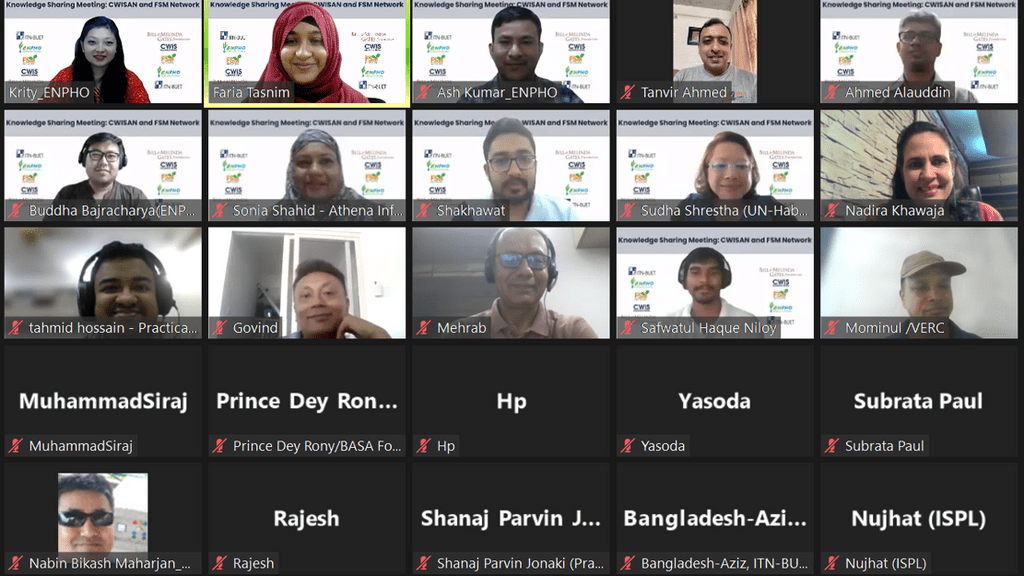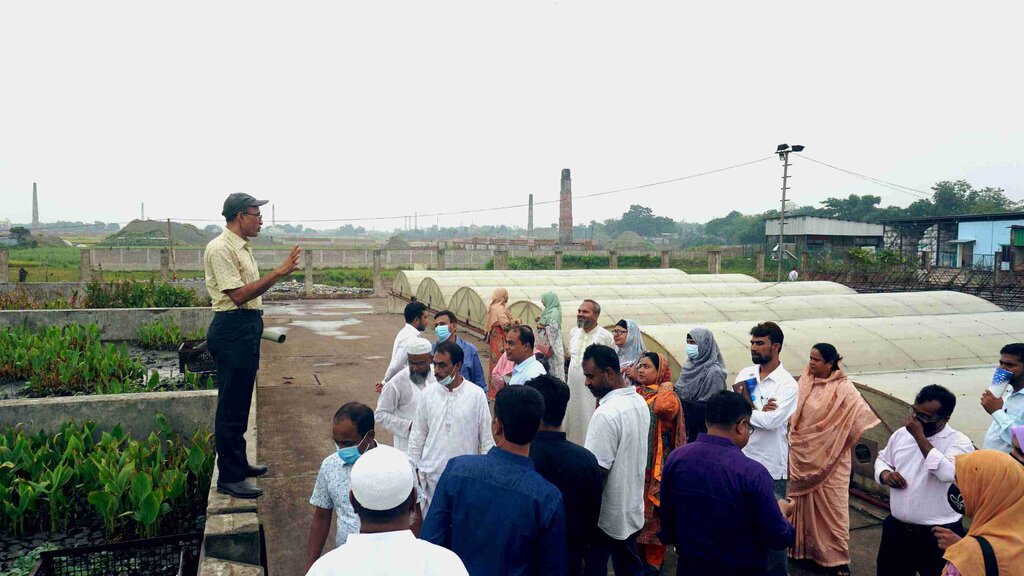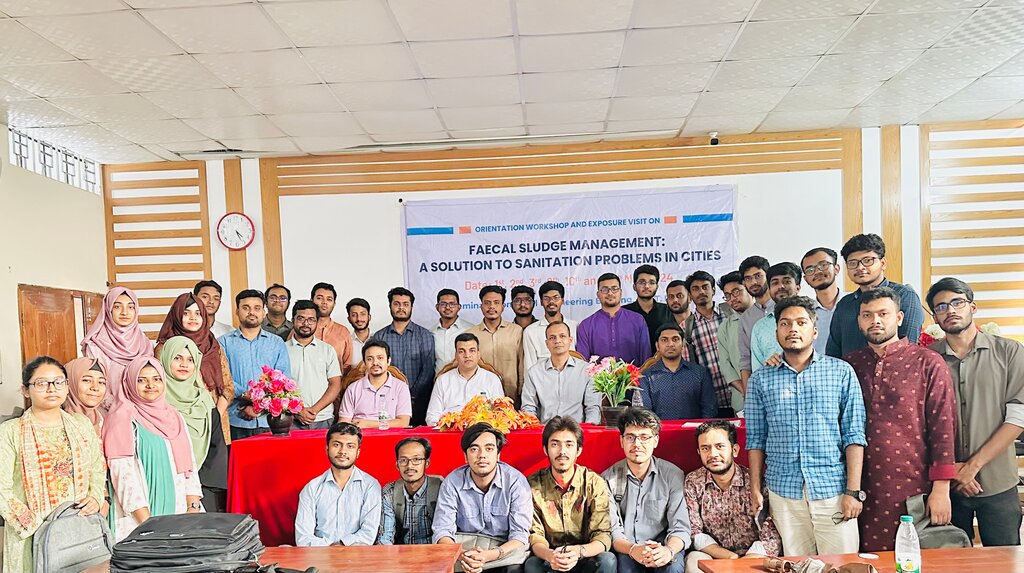In an effort to bolster sanitation initiatives and promote sustainable waste management practices, a team from Department of Public Health Engineering, ITN-BUET and CWIS-FSM Support Cell facilitated workshops on CWIS at Lalmonirhat and Nilphamari Paurashavas. The workshops, held on September 17th and 18th in Lalmonirhat and Nilphamari respectively, brought together key municipal officials, including the honorable Mayors, Councilors, Poura Nirbahi Officer, Executive Engineers, Assistant Engineers, Chief Conservancy Officers, and Sanitation workers in engaged discussion on integrated waste management.
The workshops aimed to provide technical guidance and support to these municipalities in aligning their action plans with CWIS principles and adopting sustainable financial models for Fecal Sludge and Solid Waste Management.
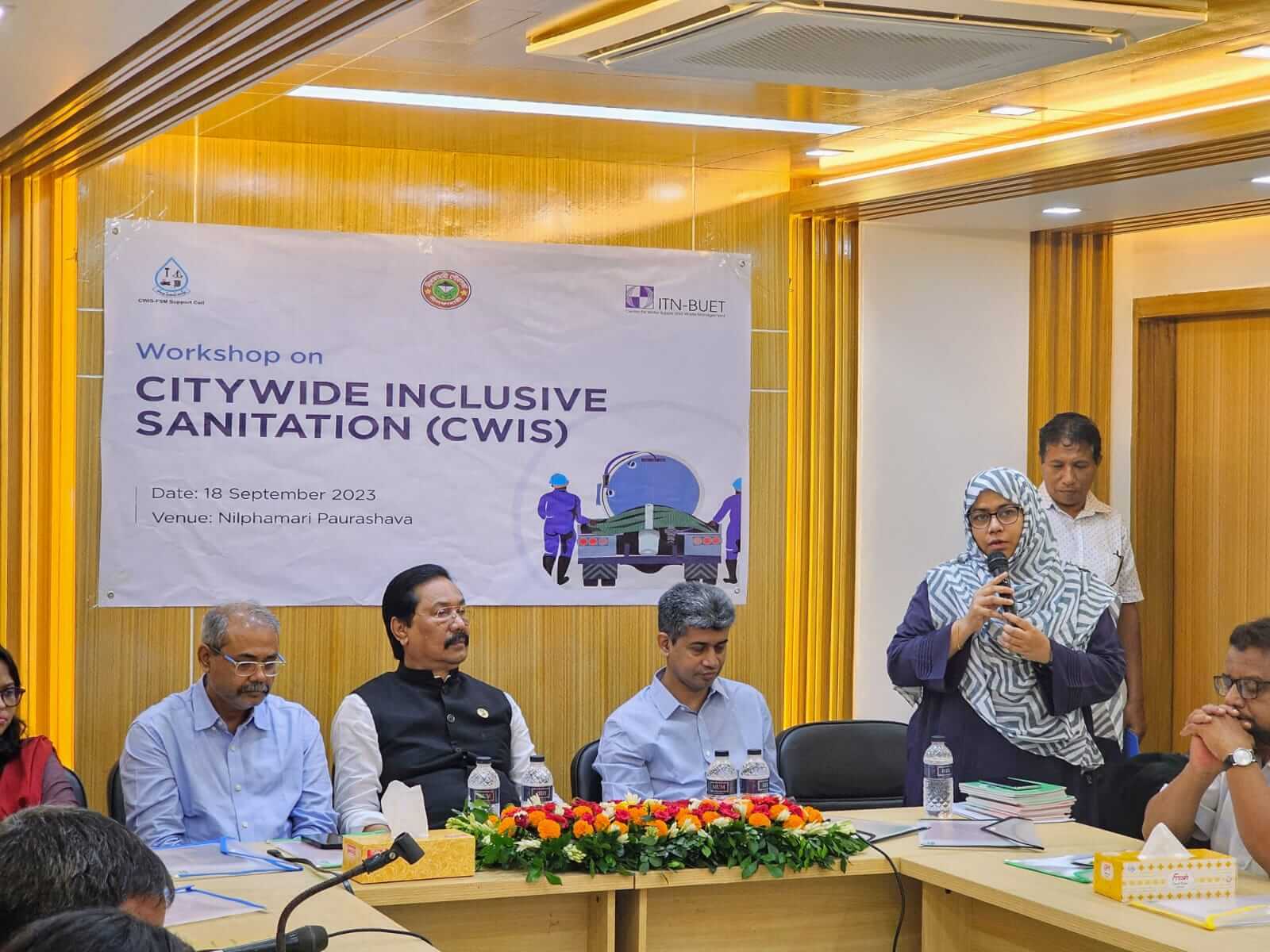
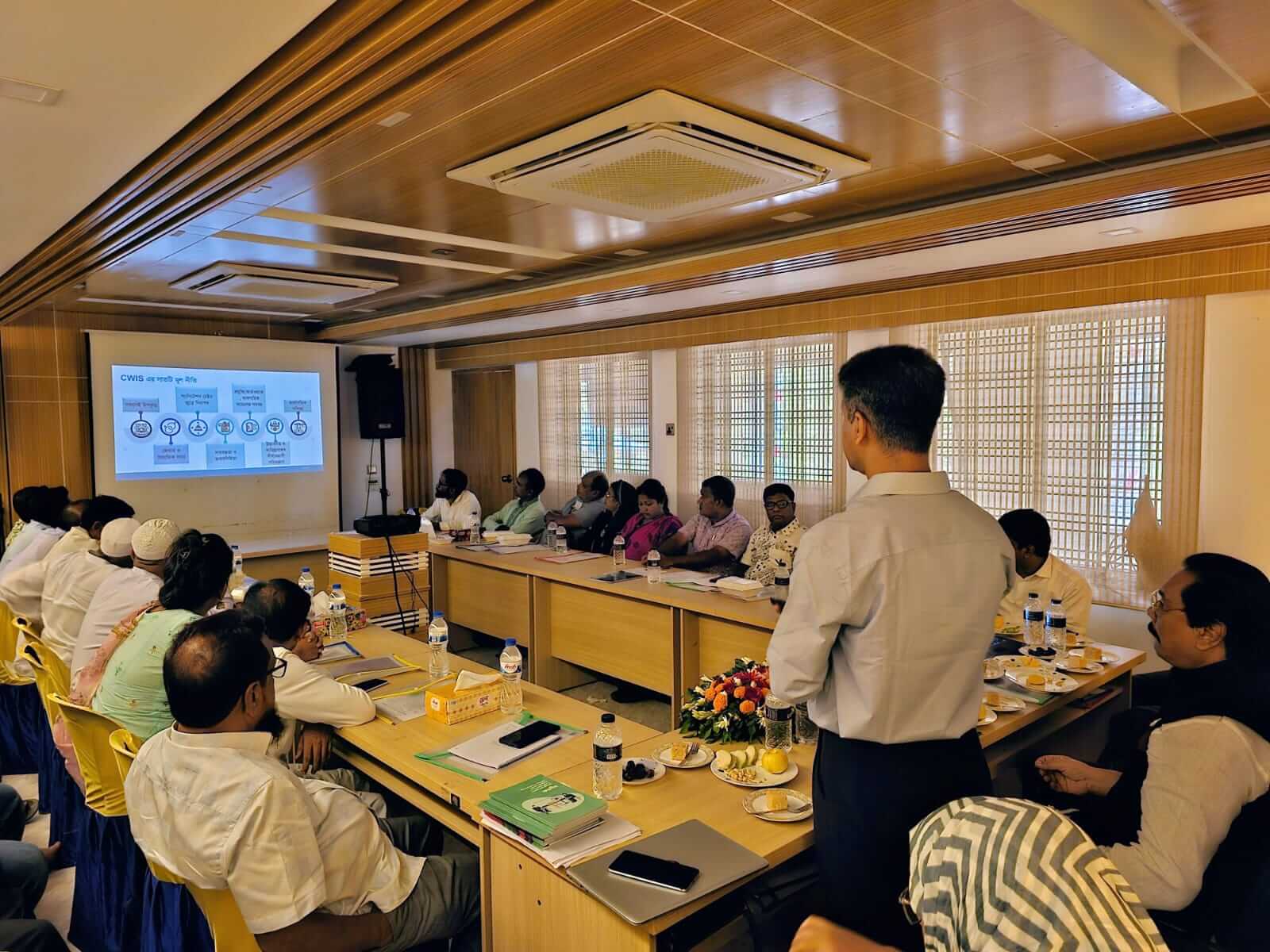
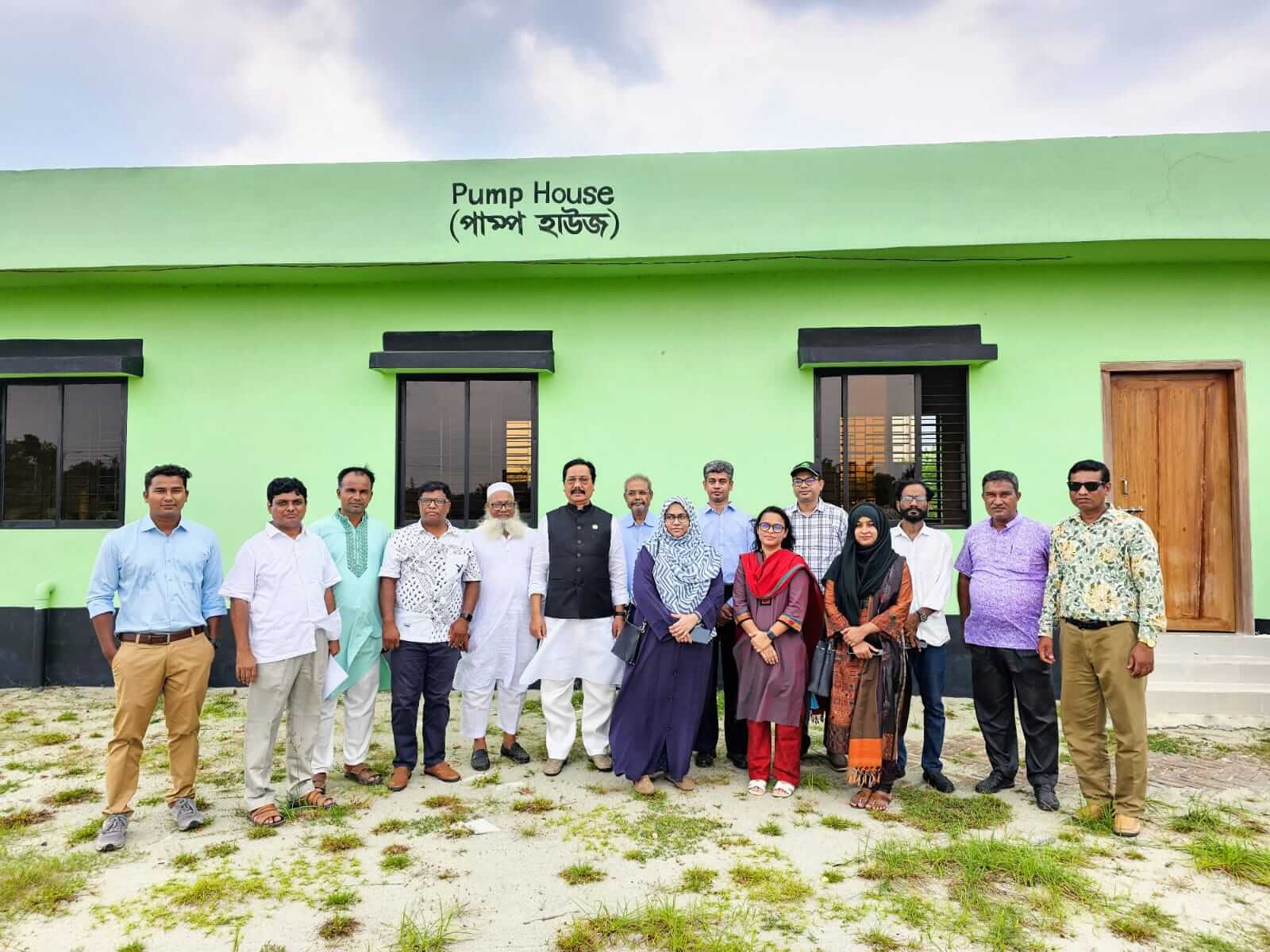
The workshop in Lalmonirhat commenced with a visit to the Fecal Sludge Treatment Plant (FSTP) and the landfill site for solid waste. Mr. Ayub Ali, Executive Engineer of Lalmonirhat Paurashava, explained the operational procedures, challenges, and best practices associated with these facilities. The workshop was graced by the Honorable Mayor of Lalmonirhat Paurashava, Md. Rezaul Karim who showed his strong commitment to bring entire Paurashava under safely managed sanitation facilities. A total 18 municipal officials took part in the event. Mr. Alauddin Ahmed, the Project Manager of ITN-BUET, addressed technical challenges encountered in FSTP and landfill site operations, while Mr. Monzur Morshed, the Business Expert of CFSC, presented various options for sustainable FSM business models and financial strategies for the municipality.
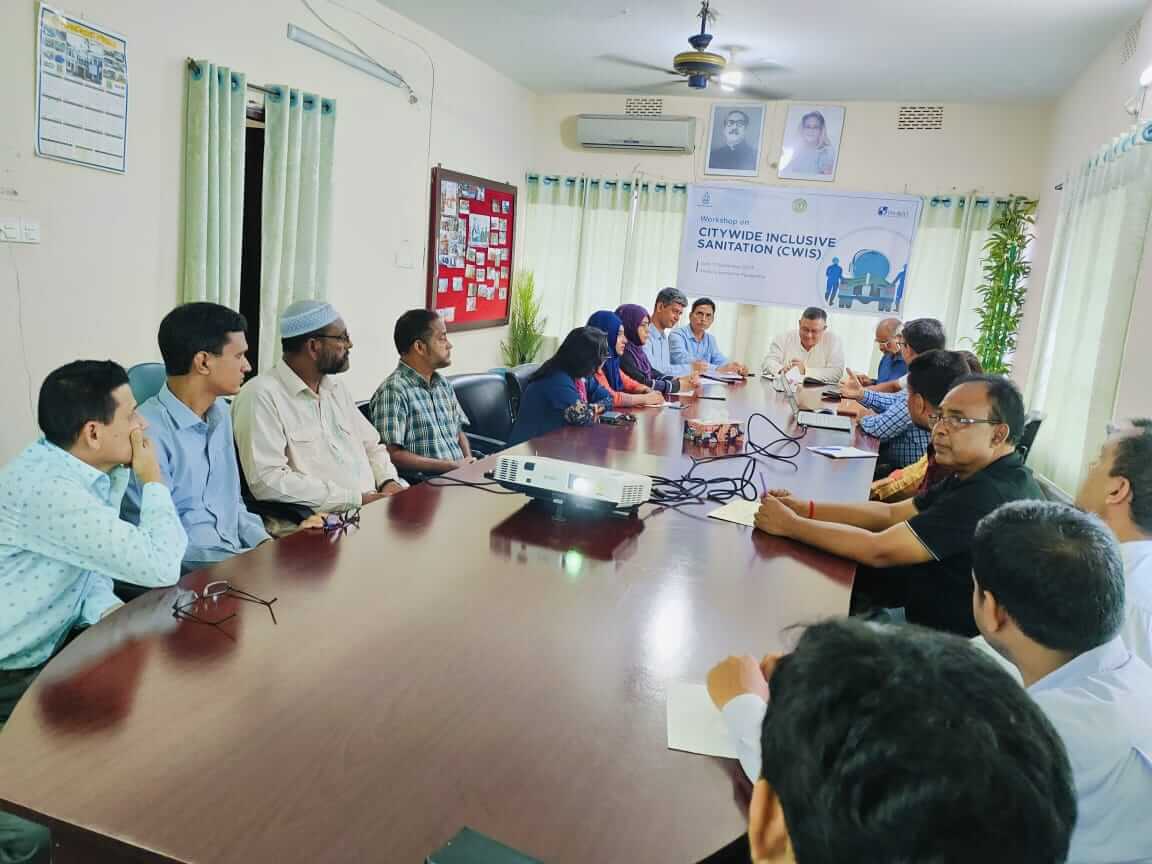
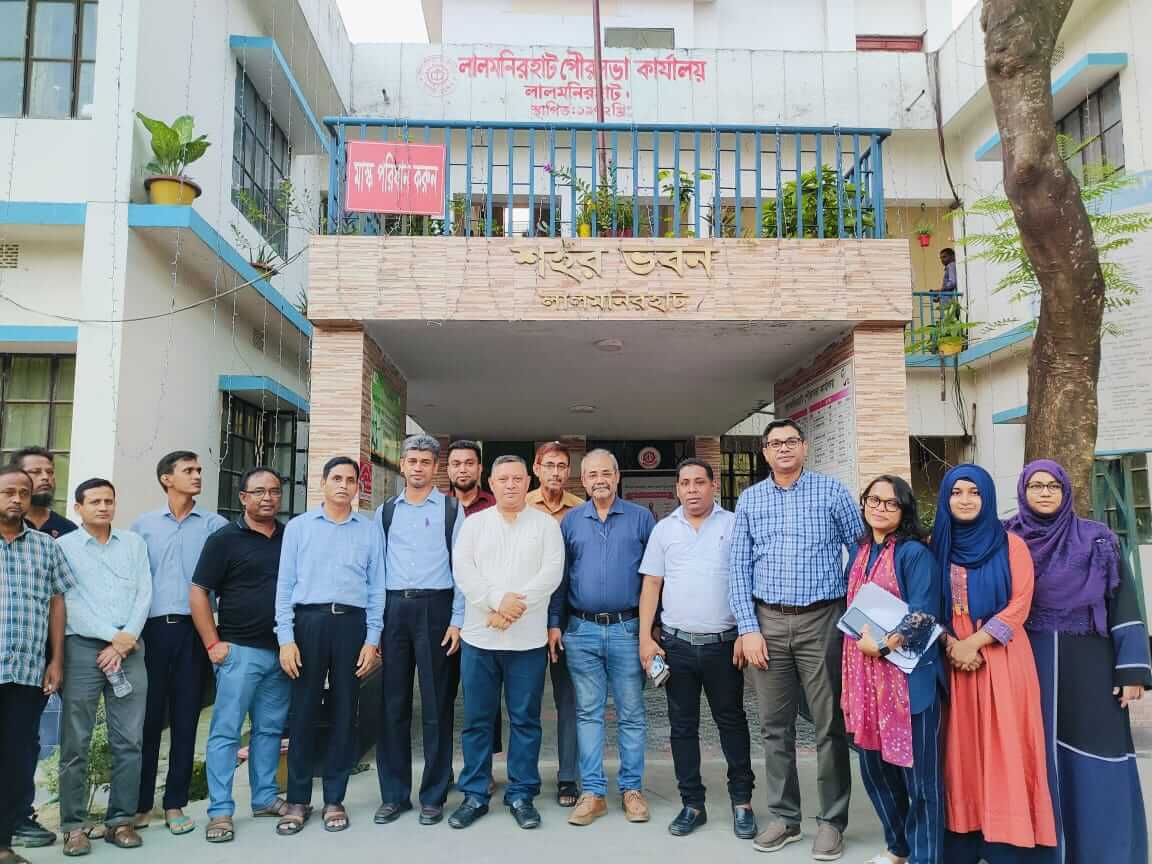
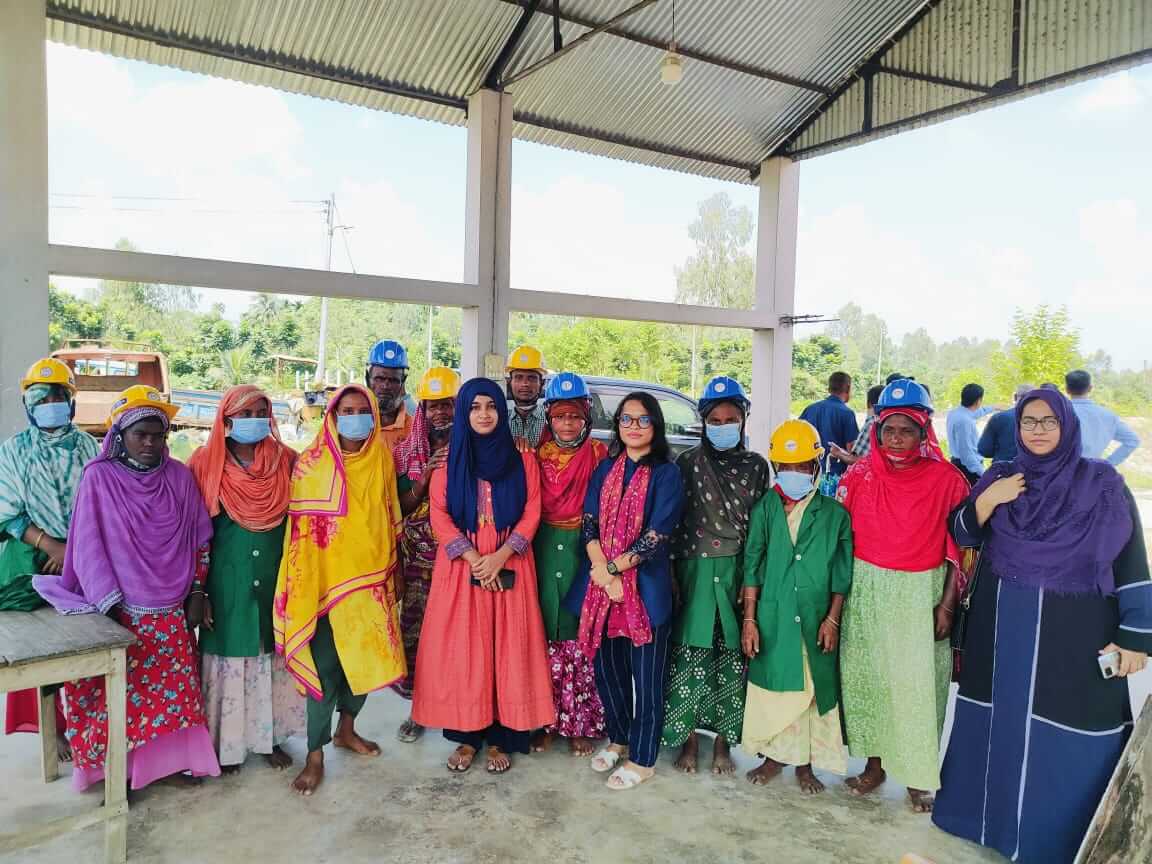
The CWIS workshop in Nilphamari municipality was graced by the Honorable Mayor and President of the Municipality Association of Bangladesh, Mr. Dewan Kamal Ahmed. He encouraged councilors and municipal officials to embrace sustainable action plans and financial models for FSM and SWM, with the aim of achieving SDG 6.2 by 2030. Total 31 municipal officials took part in the event. Mr. Alauddin Ahmed addressed the Institutional Regulatory Framework for Fecal Sludge Management and the National Action Plan-2020, outlining the municipality’s responsibilities. Ms. Dilruba Farzana, Executive Engineer of DPHE, introduced the National Sanitation Dashboard and highlighted Nilphamari municipality’s position regarding FSM and SWM, emphasizing real-time monitoring through the Dashboard for overall progress. Mr. Sanjoy Mukherjee, Social Development Expert of CFSC stressed the importance of community engagement in the development of inclusive CWIS planning for the city. Throughout the workshop, experts from CFSC and ITN-BUET covered a range of topics, including Gender and Equity, Occupational Health and Safety of sanitation workers, awareness building, and sustainable business and financial models. The team also visited the Fecal Sludge Treatment Plant and landfill site for solid waste, where Mr. Hamidur Rahman, Assistant Engineer of Nilphamari Municipality, outlined their operational plans.
During both the workshops, attendees engaged in rigorous discussions and exchanged valuable insights on how to effectively implement Fecal sludge and solid waste management operations. The discussions centered around developing practical strategies that would not only address the immediate waste management challenges but also pave the way for long-term sustainability. The workshops ended with strong commitment from municipality to adopt sustainable financial models, involving the community, and shifting towards a more holistic approach for waste management and sanitation.


.jpg)
